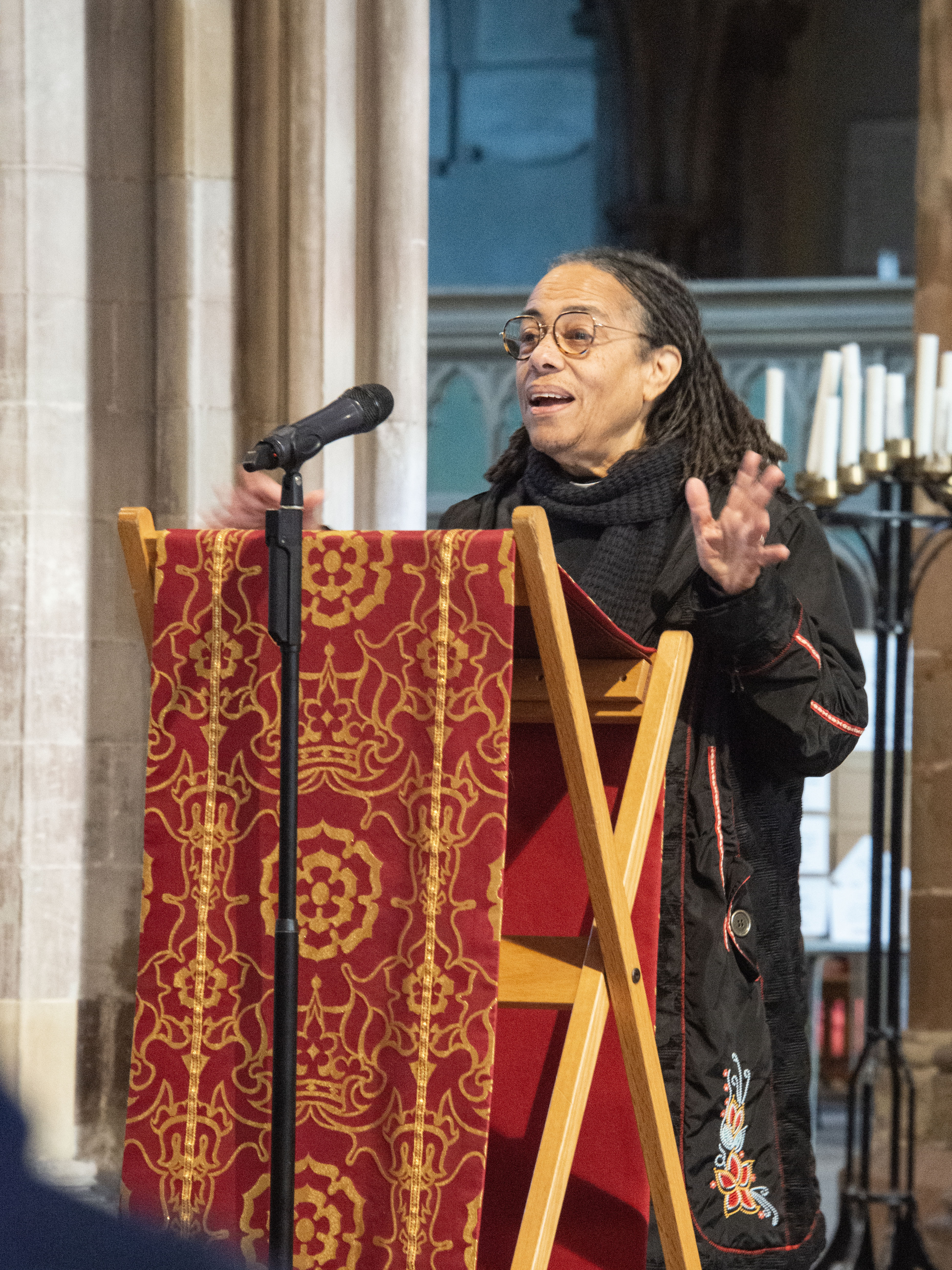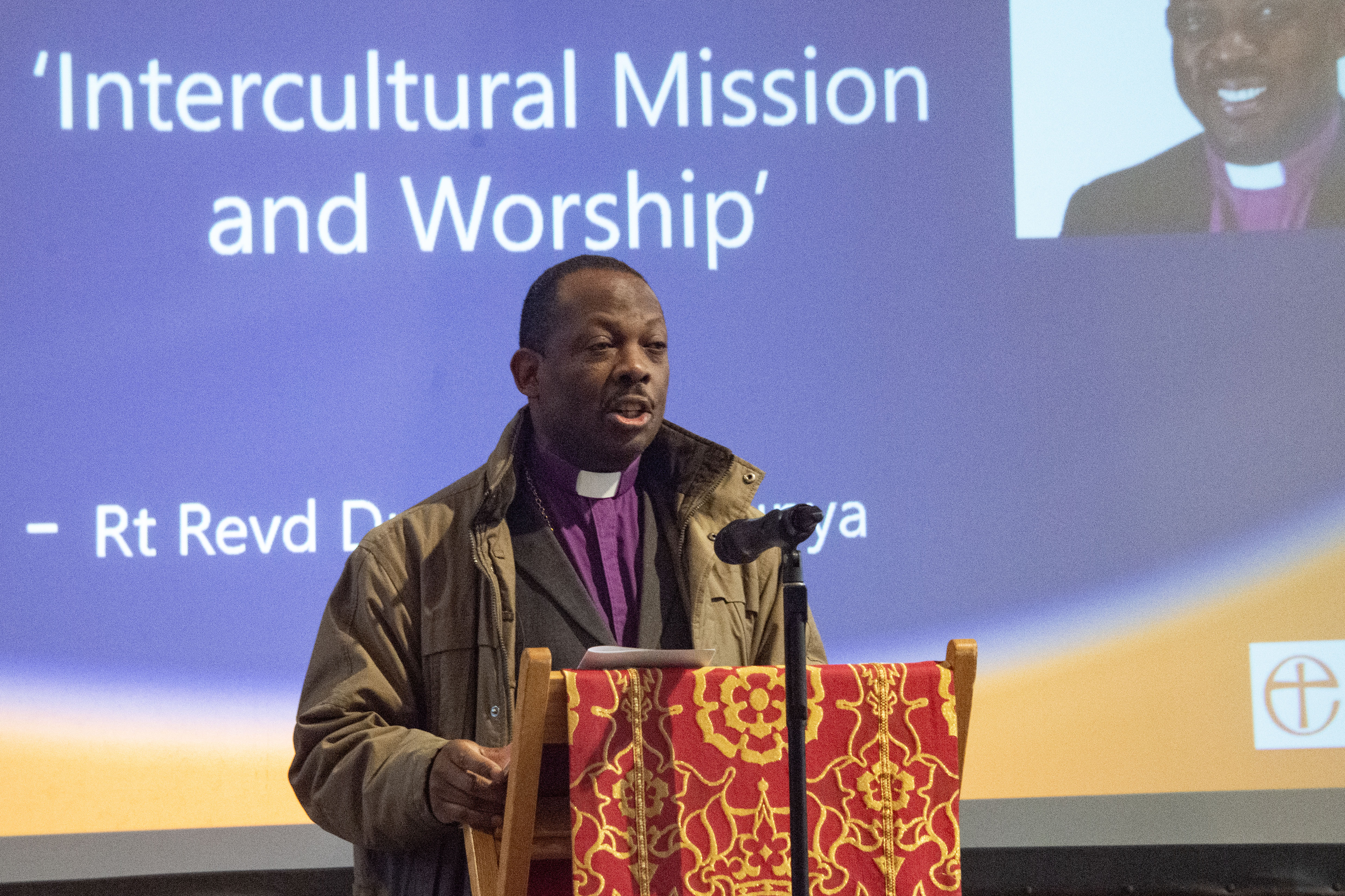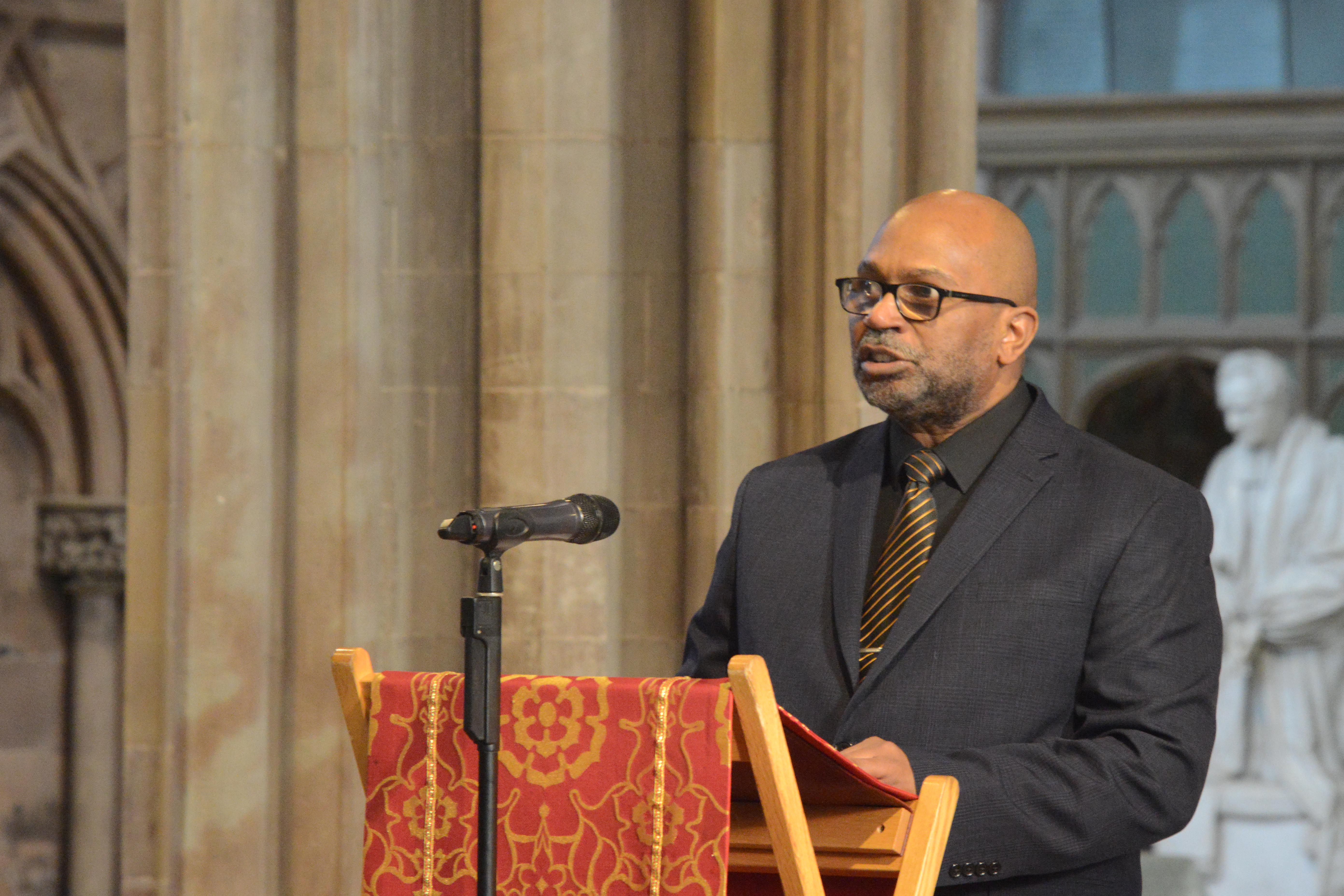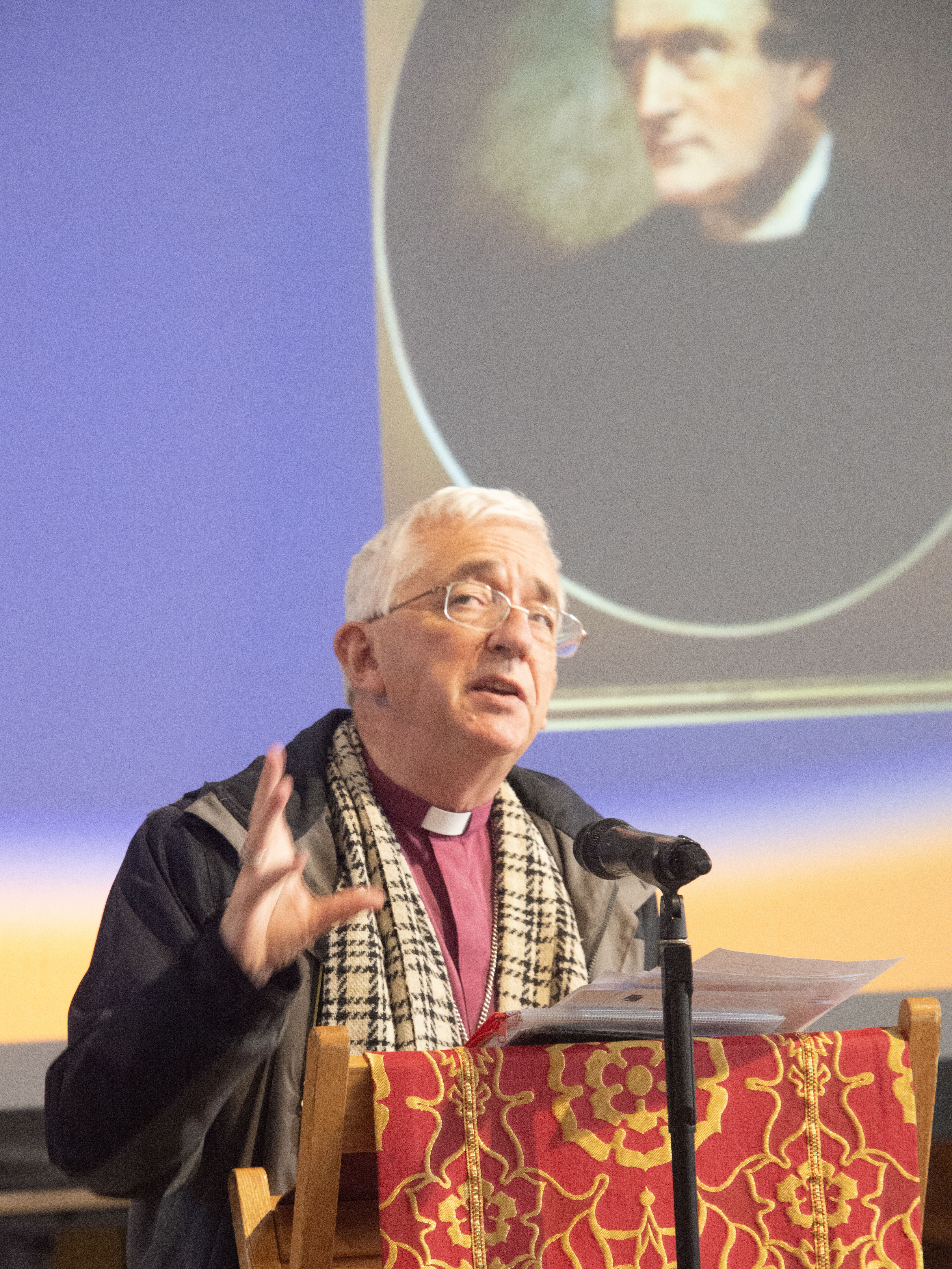Bishop Michael recently hosted the first Selwyn Lecture since before the Covid 19 pandemic, based around three perspectives on racial justice. The final one, offered by the Bishop of Lichfield, drew on his recent brief sabbatical in New Zealand which afforded him the opportunity to study the ministry of the Rt Revd George Selwyn, first Bishop of New Zealand, and the 90th Bishop of Lichfield, after whom these lectures are named.
 First, Revd Dr Evie Vernon O’Brien, born in Jamaica, spoke about ‘No peace without justice,’ drawing on her experiences of being a black woman living here in Britiain, especially around her observations of church and the experiences of her parents generation, arriving with and after The Windrush. She highlighted three particular current positive current stories in the West Midlands including the work of St Chad’s & St Mark’s Church, Wolverhampton led by Revd Ray Gaston.
First, Revd Dr Evie Vernon O’Brien, born in Jamaica, spoke about ‘No peace without justice,’ drawing on her experiences of being a black woman living here in Britiain, especially around her observations of church and the experiences of her parents generation, arriving with and after The Windrush. She highlighted three particular current positive current stories in the West Midlands including the work of St Chad’s & St Mark’s Church, Wolverhampton led by Revd Ray Gaston.
The Rt Revd Dr Tim Wambunya, Bishop of Wolverhampton, followed with a perspective on Intercultural Mission and Worship. With disarming honesty, he drew on his experiences from selection for ministry to working in a parish where by his own admission he was pleasantly surprised to find the depth and authenticity of Christian faith in community with many Asian worshippers.
 He pointed to the difference between what multi-cultural church might look like compared with that of an intercultural church, prompting us to consider ways in which we can achieve a preferred intercultural church. He gave this as an example of what intercultural church and mission looks like in our Diocese. Bishop Tim is also chair of the Anglican Network for Intercultural Churches.
He pointed to the difference between what multi-cultural church might look like compared with that of an intercultural church, prompting us to consider ways in which we can achieve a preferred intercultural church. He gave this as an example of what intercultural church and mission looks like in our Diocese. Bishop Tim is also chair of the Anglican Network for Intercultural Churches.
 The final perspective of the morning, following an update from Andy Wynter of the Diocesan Racial Justice and Inclusion Task Group on its achievements and aspirations, was from Bishop Michael.
The final perspective of the morning, following an update from Andy Wynter of the Diocesan Racial Justice and Inclusion Task Group on its achievements and aspirations, was from Bishop Michael.
He reflected on a pivotal choice made by Bishop George Selwyn during his ministry in New Zealand and connected that, and the circumstances in which that choice was made, directly with the theme of racial justice, contested history and contested memory.
The situation he described in detail is complex and Bishop Michael took a deep dive into the history to bring it to life, which can be heard in the recording of the Selwyn Lecture 2024.
Maori Christians had been themselves responsible for spreading the gospel (originally brought to them by CMS missionaries) in their communities thirty years before Bishop Selwyn’s arrival.
He and they formed a deep bond of mutual love and respect and he paid the price of some revilement among the settlers for his support and advocacy.
This was deeply tested when in the midst of increasing conflict with the settlers over Maori rights despite at treaty widely believed by the Maori to protect them, Selwyn accepted a post as a military chaplain. Although this may have been motivated by good intentions, it was a choice that was bewildering and difficult to understand for the Maoris.
So there was the choice - apparently to choose to side with the settlers after being a passionate advocate for the Maori Christians and there too was the contested history: the treaty which was believed differently by different people.
 Things got worse when there was an atrocity perpetrated by the settlers during the military conflict against women and children in Rangiaowhia. Selwyn was accused of being present, though there is no evidence of that at all. He remained troubled by these developments for the rest of his time in New Zealand.
Things got worse when there was an atrocity perpetrated by the settlers during the military conflict against women and children in Rangiaowhia. Selwyn was accused of being present, though there is no evidence of that at all. He remained troubled by these developments for the rest of his time in New Zealand.
This village was however both the site of an atrocity and also the visible reconciliation experienced by Bishop Michael when he visited there and was greeted as a (spiritual) ‘great-grandson’ of Selwyn. This is a sign of the resurrection of Christ at work today, redeeming a situation where there has been death followed by forgiveness and reconciliation.
Among Bishop Michael’s conclusions were that Selwyn’s good intentions were not enough to prevent his wrong choice hurting the victims of injustice whom he deeply loved. Though even in the complexity of this situation, neither Selwyn nor the Maori people ever lost their love for one another despite hurt and bewilderment. It is never too late to work for racial justice.